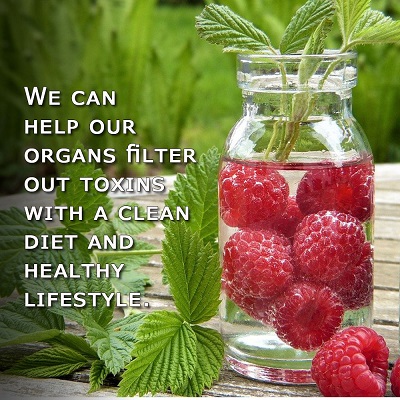 Detox is one of the biggest health buzzwords of recent years. From teas, juices, and diets, detoxifying the body to eliminate unwanted toxins has become a multi-billion dollar industry.
Detox is one of the biggest health buzzwords of recent years. From teas, juices, and diets, detoxifying the body to eliminate unwanted toxins has become a multi-billion dollar industry.
The reality is that our body has its own way of naturally detoxifying. We are already equipped with filtration and cleansing systems that flush out the harmful toxins that enter our bodies. These organs work overtime to ensure that our body is cleansed from unwanted toxins from our surroundings.
Organs that Naturally Help Detoxify the Body
Liver
The liver is an essential organ in naturally getting rid of toxins in the body. The liver’s main task is to filter our blood, and as part of that filtration process, it also processes nutrients and removes toxins, including those that are byproducts of medication and alcohol consumption.
Filtering blood and producing bile is the primary responsibility of the thousands of lobules found in the liver. Bile is a substance that breaks down toxins in the body. The liver processes and eliminates excess bilirubin, a waste that comes directly from the breakdown of red blood cells. The liver is also responsible for producing immune system cells that can eliminate disease-causing bacteria and harmful toxins from the blood.
Colon
The colon is one of the body’s main defenses against toxins. Toxic overload in the colon can produce symptoms of various diseases that can affect other parts of the body. The colon forms part of the large intestine, and its mucous membrane lining is our body’s front line of immune protection from harmful chemical toxins. The mucous membrane acts as a selective filter – it is designed to absorb nutrients from the food we intake and reject harmful toxins that come with our food.
With an overload of toxins in the colon, the mucous membrane becomes inflamed and irritated, causing digestive issues such as colitis, inflammatory bowel disorders such as Crohn’s disease and Celiac disease. If the mucous membranes are inflamed, they no longer function correctly, leading to increased toxic overload in the body.
Lymphatics
The lymph system is often overlooked when it comes to natural detox and cleansing. However, it plays an essential role in keeping our cells clean and free from harmful toxins.
The lymphatic fluid surrounds our cells, helping our bodies absorb oxygen and nutrients and filter waste back to the bloodstream. The lymphatic capillaries then act like our sewage treatment plants for lymphatic fluid, ridding the lymphatic fluid of harmful waste and toxins and preventing it from mixing with healthy cells.
Kidneys
Another organ that can filter toxins is our kidneys. The kidneys are made up of several small filtering units called nephrons. Each nephron consists of two parts – the glomerulus and the tubule. The kidneys filter out toxins by having the glomerulus allow fluids, including waste products, to pass through the kidneys.
The filtered material then passes through the tubule, eliminating waste products while releasing minerals back to the bloodstream. The waste material then flows to the bladder, where it is processed and becomes urine.
Skin
The skin is our largest organ and one that serves numerous purposes. Among its many functions is helping our body get rid of toxins. The skin is considered the last channel of detoxifying our body. It works by flushing out waste products, the residues of food that are high in protein like meat, fish, and eggs. These wastes then come out of the skin’s pores in sweat.
Skin problems such as acne, pimples, blackheads, and boils can be caused by toxin overload in the liver. When the liver is already highly congested with toxins, the skin then acts as a backup filtration system. The skin eliminates the waste from our liver through our oil ducts and produces excess oils that may lead to breakouts.
Lungs
Our lungs also play a vital role in getting rid of toxins in the body. Aside from exhaling carbon dioxide, the lungs also trap potentially harmful particles that we inhale through the mucus in the cilia, which are the tiny fibers that make up the lungs lining. Aside from trapping toxic particles, the cilia are also responsible is pushing the contaminants from the lungs.
We may not realize it, but our bodies work overtime in making sure that toxins are filtered out and eliminated. Getting rid of unwanted materials and substances has always been part of the body’s function.
Lifestyle and diet choices and occupational hazards can lead to toxic overload in the organs. While it may be impossible to live a life totally free from toxins, we can help our organs filter out toxins through a clean diet and a healthy lifestyle.






